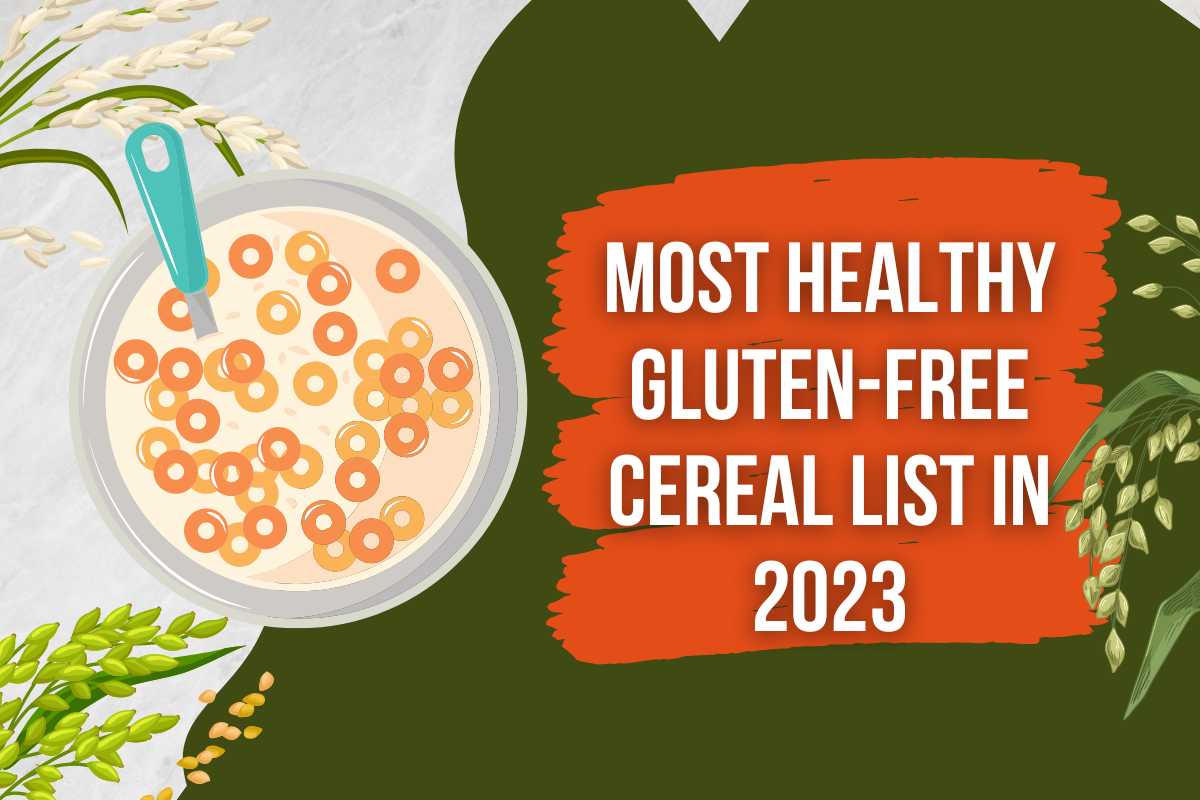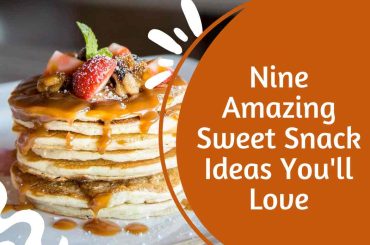Well, Gluten-free cereal consumption is a trending diet pattern in the current world. People around the world ask for gluten-free foods because of many reasons. Maybe you are also a gluten-free food consumer. People consider a gluten-free diet as a healthier option. So in this article, we will provide you with all the details on gluten-free cereals. Therefore Before going into further details on a gluten-free diet, first we should know what gluten is.
What is gluten??
Surely gluten is a protein component present in the grains like wheat, barley, and rye. This protein contains two main fractions namely Glutenin and Gliadin. If we simplify this further, usually a protein is a polypeptide (An amino acid sequence).
However, mostly they occur as linear polymers. But in some other times, they occur as folded three-dimensional globular forms. [1] Usually, gliadin has a globular shape while glutenin has a linear shape similar to a rope.[3]
What is a cereal grain??
You should know that a cereal grain consists of germ, bran, and the endosperm. These three parts contain many vitamins, fibers, minerals, antioxidants, etc. We refer to a wholegrain meal as food with all the above three parts.
Surely you tend to eat many processed cereal foods. But the quality and nutrition of the cereals reduce when you process them. Especially when you process them further, vitamins minerals and other essential nutrients will be destroyed. Therefore to lead a healthy gluten-free diet, you need to consume less processed forms of cereal grains.[2]
What are gluten-free cereal grains??
Well, as in the above chapter, gluten is a protein. It belongs to the prolamin group of proteins. Gluten-free cereal grain means a cereal without gluten in its composition. People go for gluten-free diets for many reasons. Let’s see what are those reasons.
What is the importance of a gluten-free cereal diet??
There is a growing trend for gluten-free foods. Most people believe that gluten-free diets are important For weight loss, and for boosting energy. There may be positive effects, But there is no scientific evidence on the fact that gluten-free diets are more healthy.
Gluten is dangerous only to a certain group of individuals. If you are suffering from Celiac disease or gluten sensitivity, then gluten can surely put you in trouble. [4]But for normal people, gluten has no adverse effects. At least not proven yet.
Therefore if you want to go for a gluten-free diet better to start with a gluten-free cereal diet. Because rather than any other gluten-free foods, gluten-free cereal grains have many bioactive compounds. They will help you to achieve a non-gluten diet and have many functional health benefits as well. For that, we should know what gluten-free cereal options are available and their other benefits,
What are the types of gluten-free cereal grains?
what are the benefits of sorghum as a gluten-free cereal??
Sorghum is one of the most important gluten-free cereals. You can use it as animal feed or cereal grain. Sometimes people use it as a sweetener in beverages(especially in alcohol). Sorghum syrup is the sweetener. People make them from sweet varieties. Nowadays people use sorghum in cereal-based foods, Snacks, and baked products. These baked products include bread, noodles, etc. [6]
In addition to gluten-free benefits, There are some other benefits as well. You can achieve all of them if you eat in less processed form.
- Surely this gluten-free cereal is full of antioxidants. This may help your body in preventing cardiovascular diseases and cancer.
- High protein content clearly has significant effects on regenerating cells and boosting your metabolism
- The Rich profile of minerals like calcium, iron, etc helps to boost your immunity
- And also this gluten-free cereal contains lots of fiber. That helps you in gastrointestinal health and cancer prevention. [7]
- This cereal grain help to reduce blood sugar level too.[6]
How do Oats serve as a gluten-free cereal diet??
well, oats are a popular gluten-free cereal. Contain soluble fibers that enable positive health benefits. Usually, a gluten-free diet is less in Vitamins, minerals, and fibers. In that case, oats are a good solution. Because it is rich in the above nutrients.
Oatmeal is a popular food that fulfills the needs of a gluten-free cereal diet. There are some studies done on oats as a gluten-free diet. Researchers did this study for over 24 months. They gave oats in the form of oatmeal or oat added to bread. Subjects had to eat 100g of oats per day in any combination. The results are below.
- The nutrient status of the subjects was the same as gluten diets because oats provided lots of fiber and vitamins.
- But their iron absorption was lowered
- The subjects showed no Gluten intolerance symptoms and their bowel functions were better
- The subjects continued the oats diet rather than the normal gluten-free diet.[8]
- The nutrient status of the subjects was the same as gluten diets because oats provided lots of fiber and vitamins.
In addition to the above effects, Beta-glucan in oats will decrease total and LDL cholesterol in your body. Besides, it has significant effects on lowering blood sugar levels.[6]According to the above results, we can conclude that oat is a better solution than a gluten-free cereal diet.
What are the benefits of Quinoa in a gluten-free cereal diet??
Similar to the above gluten-free cereals this is also a popular grain. In terms of celiac disease and gluten sensitivity, this is a good option. In the case of a gluten-free cereal diet, you can use it to make bread, crusts, pancakes, etc.
When considering proteins, it has a high protein quality. This is because it contains almost all the important amino acids that your body needs. If you are vegetarian, then, of course, this is better than most of the other grains. There are other benefits due to its well-balancing nutrient composition.[6]
- This gluten-free cereal has a very low glycemic index.
- And The bio-active compound profile is far better. It contains riboflavin, saponins, tocopherols, antioxidants many other vitamins, and minerals[10]
- And also This cereal is rich in fiber. It can cover up to nearly 1/5 th of your daily fiber requirement
- Furthermore, it acts as a good prebiotic and helps to reduce unhealthy fat levels in the body[9]
If you want to cook this grain, you have to remove the outer cover of the seed (We call it the seed coating). If not there will be a bitter flavor. Avoid overcooking, because it will reduce the nutritional benefits. You can cook them by boiling them for 15 minutes and finally straining them.
Buckwheat benefits as a gluten-free cereal
Although the name says buckwheat, this is also a gluten-free cereal. Therefore it is important for gluten-sensitive people as the above grains. But this is a pseudo-grain. But in terms of nutritional value, it is quite similar to normal grains. Some researchers conducted a study on this buckwheat. Mainly for its nutritional value as a gluten-free cereal. According to the result they got, we can make the following conclusions.
- Clearly, buckwheat has a significantly protein content than wheat. Buckwheat flour usually contains about 15.24% of proteins, which is considered as high. In buckwheat also EAA (essential amino acids- These Amino acids do not produce in the body. Therefore we have to take them through food) is high. This is even greater than quinoa.
- But the gluten-free cereal contains somewhat high-fat content[11]
According to certain other studies,
- Buckwheat is rich in bioactive compounds( phenols, tannins. Etc.).They help to prevent many of your diseases due to wrong life patterns.
- It has a very good fat profile. High in polyunsaturated fats nearly 80%.Especially this is important for your cardiac health(heart health)
- Furthermore, this gluten-free cereal contains a huge proportion of soluble fibers. It may help you to maintain health in the digestive tract, and heart and prevent colon cancer[12]
Benefits of Corn as a gluten-free cereal
Corn is very popular considering other gluten-free cereal grains. Not only gluten-sensitive people, but normal people also like to eat corn. You can eat this in many forms because it is available in many food products. Using cornflour you can make cakes, pasta, pizza, biscuits, etc. Therefore you can easily go for corn in terms of a gluten-free diet. Below are some other benefits of corn.
- Corn is rich in zeaxanthin( and lutein). They are the pigments that result in the orange-yellow color of corn. Of Course, they are antioxidant compounds that can promote your health preventing many diseases (cardiac health, cancer, Overweight, etc)
- More importantly, you can prevent eye-related disorders by eating corn. This effect is mainly due to zeaxanthin.[6]
- And also Corn is a rich source of Vitamin B6. It helps in preventing anemia
- Promoting the health of the brain.
- Rich Vitamin B and Vitamin C content help to downregulate your blood sugars[14]
You can prepare corn in a palatable form easily. Either you can eat them raw, you can boil them, Or else roast them. And also you can use cornflour to prepare different foods. Furthermore, you can eat commercial products like Corn flakes, cornmeal, and hominy as gluten-free cereal products.[13]
What are the benefits of teff as a gluten-free cereal??
Teff is not a very known gluten-free cereal. But people with celiac disease or gluten sensitivity know well about that. This has a very low glycemic index than wheat. This is because the starch in teff is difficult to digest. That means it is also healthy for diabetic patients other than gluten-intolerant people. There are some other benefits of teff other than the gluten-free effects. They are as follows.
- If you consume teff as a whole grain, then you can control your risk of diabetes. The high fiber content and the phytochemicals in this gluten-free cereal have effects on this.
- Contains soluble fibers that have significant health benefits for the gut. And also these soluble fibers are important to avoid cancers in the colon.
- Furthermore, this cereal contains excellent amounts of iron content and calcium contents. This will help to prevent deficiency of iron in your body. But there are some iron-binding compounds like phytates that reduce the absorption of iron into the body. However, due to the overall effect, iron deficiency risk will be reduced.[15]
Every situation has both strong points and weak points. Now let’s consider the pros and cons of having a gluten-free diet.
What are the benefits of a gluten-free diet??
- For celiac patients, wheat allergy, corn allergy, and gluten-sensitive people this diet is quite helpful. This diet will prevent your body from harmful allergic reactions due to gluten. The healthiness depends on the type of cereals you choose. If the cereals are of good nutrient quality then that gluten-free cereal diet is healthier.[16]
- Most whole-grain cereals contain many phytochemicals that protect the body from many diseases like hypertension, heart attack, cancer, etc.
- Some beneficial gluten-free cereal grains like corn, oats, and brown rice can reduce your body weight
- Besides a gluten-free diet can suppress some mental ailment conditions like Schizophrenia.
What are the drawbacks of a gluten-free diet??
- Most of the gluten-free cereal-based products available in the market are in refined forms. So that their composition mainly has energy from fat and carbs rather than micronutrients.
- Some commercial gluten-free products have much less protein content than gluten-containing products.
- Unlike gluten, free food products are less in bioactive nutrients (riboflavin, iron, calcium, etc). Therefore their disease prevention ability in the body is low. [17]
- Non-gluten foods are high in fat and sugar. They increase the cardiac ailments risk.
- And of course, most gluten-free products lack fiber. That means many health benefits are hindered.
- Finally, if you go for a gluten-free diet then your expenses are going to be high without many health benefits.
Hope you enjoyed the information. Please leave a comment if you think it helped you to find the information you need or if need to improve the article. Thank you so much!!!





